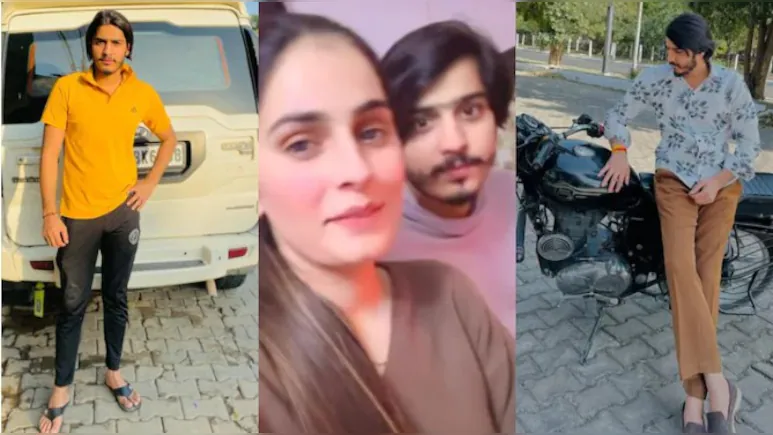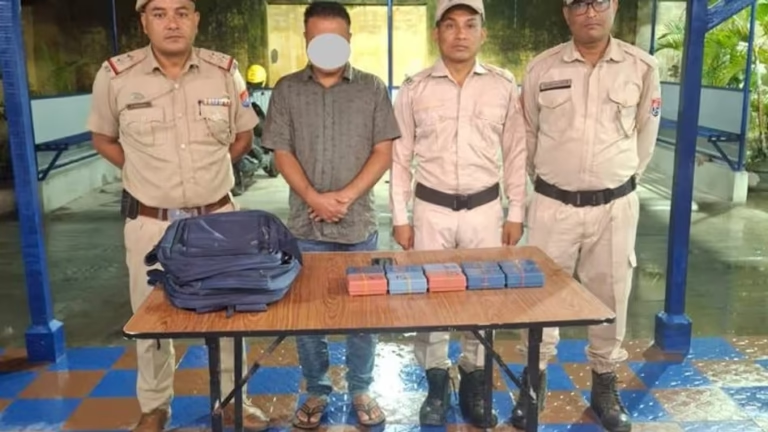NCW Takes Suo Motu Cognisance of Nikki Bhati’s Murder
The National Commission for Women (NCW) has taken suo motu cognisance of the shocking alleged dowry murder of Nikki Bhati in Greater Noida, and has demanded a detailed action report from the Uttar Pradesh police within three days. Nikki, reportedly set on fire after a dispute over dowry demands, died en route to hospital; police have arrested multiple members of her in-laws’ family, including her husband. The NCW’s intervention pushes the case into the national spotlight and aims to fast-track accountability and oversight.
From what multiple outlets have reported:
- Nikki Bhati (reported age ~26–28 in press coverage) allegedly faced repeated dowry demands from her husband and his family. On August 21, 2025, after a dispute, she was allegedly assaulted and set on fire inside their house in Greater Noida. She succumbed to her injuries while being taken to the hospital. A chilling video and eyewitness accounts (including her small son’s statements) made the case explode on social media and mainstream press.
- Following public outrage and police investigation, multiple members of the husband’s family were arrested—reports list the husband Vipin Bhati, his brother Rohit, their parents (including the mother-in-law), and others in custody as investigations proceeded. One report said the husband was shot in the leg while allegedly trying to escape during police custody procedures.
- The NCW, seeing the public alarm and the gravity of the allegation, took suo motu cognisance and formally asked the state police for a detailed action report within three days—a move intended to accelerate scrutiny and ensure that the investigation doesn’t lapse
Who was Nikki?
In the rush of facts and outrage it’s easy to forget: Nikki was a person with dreams, responsibilities, and relationships. Coverage indicates she and her sister had started a beauty parlour and social-media activity; the family gave gifts at the wedding (a Scorpio SUV, gold), but demands reportedly escalated later to a sum of ₹36 lakh, according to her family’s accounts. She had a child, and the videos and witness statements described a small terrified child present during the attack. In short: a working mother, entrepreneur, daughter — now at the center of a legal and moral storm. Media accounts convey not just the horror but the grinding background of alleged harassment and economic control that led to this outcome.
FAQs
1) What is “suo motu cognisance” and why did NCW use it here?
“Suo motu” means the NCW took notice on its own, without a formal complaint. It did so because the case involved an alleged dowry murder with widespread public attention and potential lapses in investigation—situations where the NCW’s oversight can accelerate action.
2) What criminal charges are likely in a dowry murder case like Nikki’s?
Typically, charges may include sections for dowry death, cruelty by husband/relatives, and attempt to murder / murder if arson and intent are substantiated. The exact sections depend on the evidence the police collect. Recent codifications under the Bharatiya Nyaya Sanhita keep similar punishments for dowry deaths.
3) Can NCW make the police arrest someone?
No. NCW cannot arrest, but it can ask for immediate action, demand reports, recommend prosecution, and bring pressure for transparent investigation. Its public oversight often speeds up local action.
4) How quickly should evidence be collected in such cases?
Immediately. Forensic evidence, medical records, and scene preservation are time-sensitive—delays can make reconstruction and prosecutions much harder. That’s why NCW’s three-day demand is significant: it forces authorities to document early steps.
5) What happens if the police report is unsatisfactory to NCW?
NCW can escalate: ask for a reinvestigation, recommend an SIT (Special Investigation Team), approach courts for directives, or urge state/Centre intervention. Public pressure and judicial oversight often follow if investigations are seen as lax.





